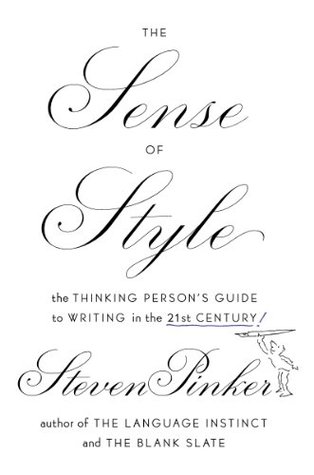More on this book
Community
Kindle Notes & Highlights
Started reading
May 3, 2018
“Write with nouns and verbs,” “Put the emphatic words of a sentence at the end,” and best of all, his prime directive, “Omit needless words.”
Will Strunk got out of this predicament by a simple trick: he uttered every sentence three times.
I like to read style manuals for another reason, the one that sends botanists to the garden and chemists to the kitchen: it’s a practical application of our science. I am a psycholinguist and a cognitive scientist, and what is style, after all, but the effective use of words to engage the human mind? It’s
I think about how language works so that I can best explain how language works.
They misdefined terms such as phrase, participle, and relative clause, and in steering their readers away from passive verbs and toward active transitive ones they botched their examples of both. There were a great number of dead leaves lying on the ground, for instance, is not in the passive voice, nor does The cock’s crow came with dawn contain a transitive verb. Lacking the tools to analyze language, they often struggled when turning their intuitions into advice, vainly appealing to the writer’s “ear.” And they did not seem to realize that some of the advice contradicted itself:
George Orwell, in his vaunted “Politics and the English Language,” fell into the same trap when, without irony, he derided prose in which “the passive voice is wherever possible used in preference to the active.”3
Linguistic research has shown that the passive construction has a number of indispensable functions because of the way it engages a reader’s attention and memory. A skilled writer should know what those functions are and push back against copy editors who, under the influence of grammatically naïve style guides, blue-pencil every passive construction they spot into an active one.
Style manuals that are innocent of linguistics also are crippled in dealing with the aspect of writing that evokes the most emotion: correct and incorrect usage. Many style manuals treat traditional rules of usage the way fundamentalists
sap...
This highlight has been truncated due to consecutive passage length restrictions.
And the orthodox stylebooks are ill equipped to deal with an inescapable fact about language: it changes over time.
Language is not a protocol legislated by an authority but rather a wiki that pools the contributions of millions of writers and speakers, who ceaselessly bend the language to their needs and who inexorably age, die, and get replaced by their children, who adapt the language in their turn.
White’s condescension to these “youths” (now in their retirement years) led him to predict the passing of nerd, psyched, ripoff, dude, geek, and funky, all of which have become entrenched in the language.
As people age, they confuse changes in themselves with changes in the world, and changes in the world with moral decline—the illusion of the good old days.4
Unless the present progress of change [is] arrested . . . there can be no doubt that, in another century, the dialect of the Americans will become utterly unintelligible to an Englishman.—1833
Today’s writers are infused by the spirit of scientific skepticism and the ethos of questioning authority. They


